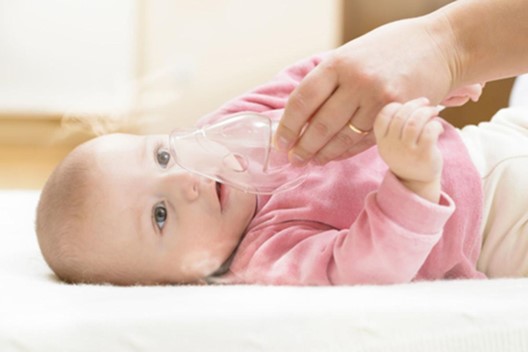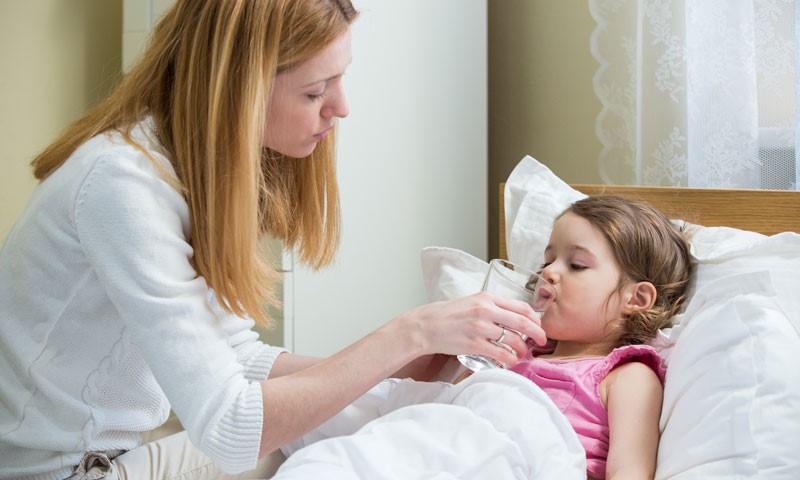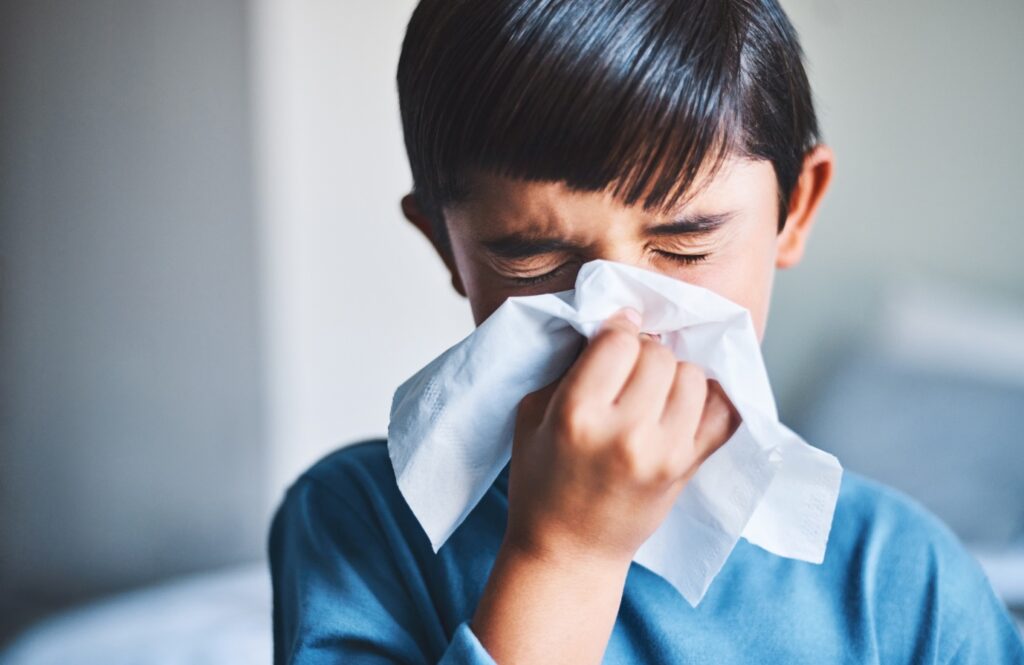Bronchiolitis is a common chest infection among infants. The virus infects the small breathing tubes of the lungs, causing them to become inflamed and blocked. Bronchiolitis can be caused by different viruses; the most common cause is Respiratory syncytial virus or RSV in short. It is expected during the months of winter.
What are the signs and symptoms of bronchiolitis?
If severe, there will be additional signs such as grunting noises, feeding difficulty, chest retractions turning blue or grey, less active, and urinating less than usual. If there are signs such as this, a child should be immediately taken to the emergency room.
How is bronchiolitis diagnosed?
- History and clinical examination
- Measuring oxygen saturation of blood
- Xray if severe
- Respiratory syncytial virus (RSV) antigen test if severe
What treatment could be provided at home?
You can use saline nose drops and gentle nasal suctioning for thick mucous plugs for nasal congestion. A humidifier keeps the air moist, which could help with breathing and coughing. Avoid children getting exposed to cigarette smoke, strong perfumes, and dust, as it can worsen bronchiolitis. Treat fever with antipyretics in the correct dosage prescribed by a doctor.
Mamas, please make sure that your child gets enough liquid. They might prefer water or other clear liquids to milk or formula. They might refuse feeds. Give smaller amounts of food or liquid at intervals so that they stay hydrated.
If your child is already taking any medications or nebulization, you must continue those. See a pediatrician if it’s tough to administer those. Antibiotics will not help as it is a viral infection.
Risk factors for this severe disease include
- Preterm and small for gestational age babies less than 6 months
- Airway abnormalities
- Abnormal immune disorders
- Smoking by caretakers
- Crowded housing conditions
- Chronic lung disease, for example, bronchopulmonary dysplasia
The prognosis is excellent if identified and treated at the right time. Most of the children recover without any adverse effects. Past studies suggest that infants with severe bronchiolitis will develop wheezing in the future, but longitudinal studies have not borne this out.
Can bronchiolitis be prevented?
Bronchiolitis spreads through close contact with saliva and nasal secretions. So practice good hand washing and keep your distance from sick people. If your child is infected, keep them at home to prevent spreading the disease to others. Do not share towels, cups, forks, or spoons.
How long does bronchiolitis last?
During the first 1-3 days, cough and fever might increase, then it improves over the next one or two weeks. The cough can continue for a few more weeks. Antibiotics are not indicated. If your child has no fever or breathing difficulty and is taking the feeds well, they can go back to nursery or daycare.
An insight from mamahood
Mamas, we understand it can be scary when your child gets this viral infection. You will be able to help your baby to be more comfortable with home treatment tips. Treatment is focused on relieving symptoms and maintaining hydration and normal oxygen levels. Continuously monitor the child at home for the development of any danger signs, and the baby should be seen by a pediatrician immediately in that case.
Children do not develop permanent immunity to the virus after the first infection. Subsequent infections are usually mild. The body produces antibodies against RSV, but these do not offer lifelong protection. Most children only experience mild runny nose and nose block in the subsequent infections. Even though the RSV infection itself is over, the symptoms, such as coughing and wheezing, can continue for some weeks. This is normal. If it takes too long and you are worried, consult your doctor.








